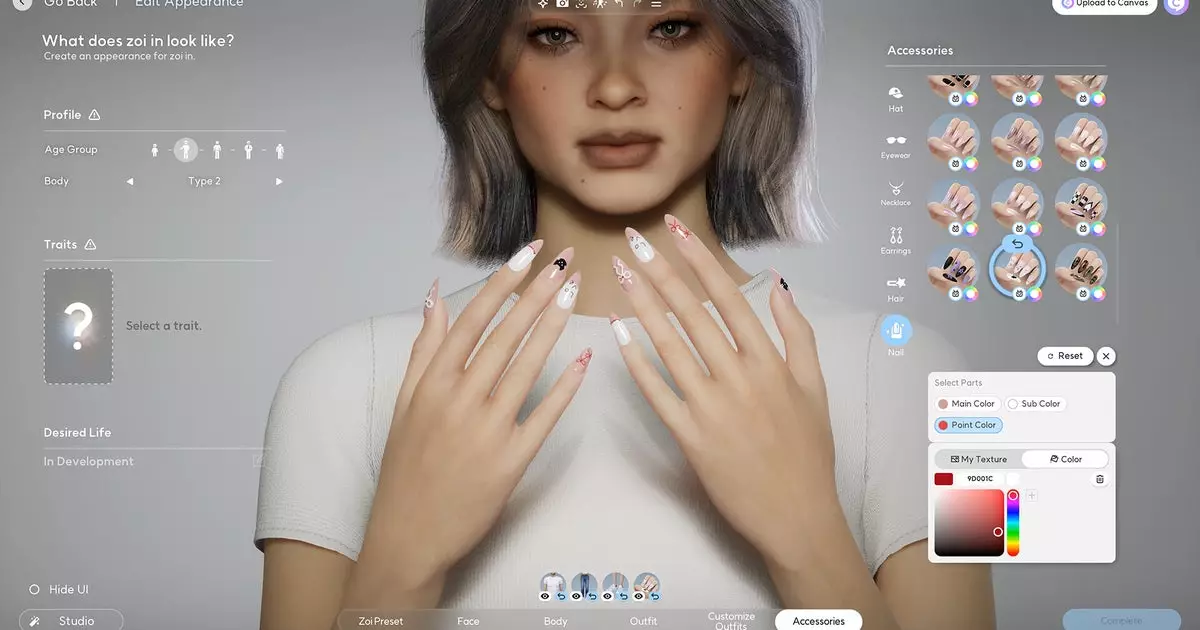In a gaming landscape dominated by titans like The Sims 4, the forthcoming life simulation game InZoi boldly adheres to a philosophy that prioritizes player experience by offering an early access model priced at just $40. With a promise of all updates and downloadable content (DLC) being provided for free until the official 1.0 release, the game aims to forge a strong initial connection with gamers accustomed to the hefty price tags of add-ons that often accompany mainstream titles. This move is both audacious and commendable, yet it unearths a multitude of complexities inherent to early access gaming.
A Generosity or Strategy? Unpacking the Pricing Model
The developers of InZoi, led by game director Hyungjun Kim, frame their strategy as a generous offering to the gaming community, a departure from the norm that players have come to expect from established franchises. However, the idea of “free” updates and DLCs during early access raises questions about the inherent value of the early access model itself. Traditionally, early access signifies that players invest in a game that remains a work in progress, a situation that naturally suggests they should expect some perks along with their investment. Ultimately, it’s crucial to question whether this pricing strategy is truly generous or merely a business decision designed to lure disaffected fans of The Sims into a new economic reality.
While some will argue that it’s unreasonable to charge for early access updates, I would argue that this nuance is often lost in the fervor of discussion. A game may face unforeseen circumstances during its development cycle, such as rising operational costs or requests for features that were not initially contemplated. This can create a scenario where updates suddenly bear a price tag, contradicting the very philosophy that established early access as a player-first initiative.
InZoi’s Unique Selling Points: A Mod Kit and Beyond
One of the standout features of InZoi is its mod kit, scheduled for release in May, which aims to empower a community of players to customize their gaming experience. In an era where player engagement is paramount, this innovation may just be InZoi’s ace in the hole, facilitating an ecosystem in which players can not only interact with the game but also actively shape its evolution. While this approach may not guarantee immediate competition with The Sims, it creates a fertile ground for a dedicated community that values creativity and individuality.
Additionally, InZoi introduces exciting gameplay elements, such as the ability to assume the role of a ghost, adding depth and novelty to character interactions. With 16 distinct ways for characters to meet their demise, the specter mechanic offers a whimsical twist to the conventional life simulation narrative. This creative layer may entice players who seek experiences beyond the typical day-to-day simulation, thereby positioning InZoi as an adventurous alternative to its predecessors.
However, the potential challenge lies in community engagement. Without a robust modding community, any game that aims to rival a beloved franchise may find itself stunted in growth. Will InZoi attract a fervent base of players willing to create, share, and enhance the game? Only time will tell.
Navigating the Mixed Messages of Development
The anticipation surrounding InZoi’s launch is palpable, yet it is accompanied by a spectrum of expectations that could complicate its initial reception. Ambiguities regarding the distinction between updates and DLC, for instance, add layers of confusion to the player’s understanding of what ‘free’ truly entails. Does an update rework existing content while a DLC introduces new mechanics, or can they ultimately bleed together under the same umbrella? This lack of clarity may serve to alienate players, particularly those who derive joy from exploring and understanding the intricate details of game mechanics.
As the early access model continues to evolve, developers must remain cognizant of these complexities. It’s essential to communicate transparently with their player base, ensuring that users feel valued and informed rather than exploited. The notion that players should simply “trust the process” can dilute enthusiasm, leading to disengagement at a critical juncture.
InZoi presents itself not merely as a game, but as a bold statement—one that takes a risk by attempting to shake the foundations of a well-entrenched genre. As it prepares for its March 28th launch, all eyes will be on whether it can deliver an engaging, immersive experience marked by both creativity and community interaction. The world of life simulation gaming may soon see an invigorating change, but will it be enough to challenge the existing giants?

